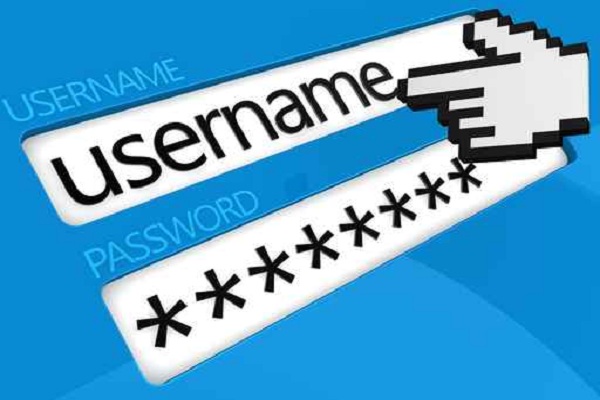Malwarebytes unmasks new Skype phishing scam
Cyber criminals steal validated login credentials while also deploying banking Trojan.


Malwarebytes researchers have discovered a new scam being distributed via Microsoft-owned instant messaging service Skype.
The phishing attack manifests as a message from a Skype contact, and claims the user will be able to get a free upgrade to Skype Premium by following a link contained in the message.
However, the scam steals the user's account credentials and then goes on to deliver a well-known banking Trojan onto their computer.
While you may do everything in your power to keep your data safe, your friends and family might not be so prudent.
While Skype and other messaging services have long been a popular infection vector for cyber criminals, Adam Kujawa, a malware intelligence analyst at Malwarebytes, claims this particular attack is unusual, as it checks the validity of a victim's credentials before proceeds.
In an upcoming blog post, Kujawa explains how he created a new account in the name of Sean Connery's character from Highlander, immortal Juan Sanchez villa-lobos Ramirez, in order to expose the scam.
"If you give them fake or incorrect login details, [the scam] will not proceed. So in order to test this scam without giving up my own personal information, I decided to create a new account...with the Skype name Villa-LobosRamirez," Kujawa said.
It is only once legitimate account details have been entered that the victim is taken to a page imitating the official Skype Download page, which will then attempt to install an executable file named "SkypePremiumSetup", or something similar.
Get the ITPro daily newsletter
Sign up today and you will receive a free copy of our Future Focus 2025 report - the leading guidance on AI, cybersecurity and other IT challenges as per 700+ senior executives
A popup screen then appears, claiming the user's lifetime premium package is being activated. However, their computer is in fact being infected with a Trojan that can steal financial and online banking details.
Additionally, the victim's Skype account will now begin proliferating the scam, with a message similar to the one that originally reeled them in.
"The reality is that while you may do everything in your power to keep your data safe and secure from cyber criminals, your friends and family might not be so prudent. With that in mind, it is important that any communication that you are not certain is coming from someone you know [is] seen as suspicious," Kujawa advises.
"The key is to always be sceptical and [take] prudent security approaches with everything you come across. By double-checking the legitimacy of a single link, you could save yourself some serious heartache," he concludes.

Jane McCallion is Managing Editor of ITPro and ChannelPro, specializing in data centers, enterprise IT infrastructure, and cybersecurity. Before becoming Managing Editor, she held the role of Deputy Editor and, prior to that, Features Editor, managing a pool of freelance and internal writers, while continuing to specialize in enterprise IT infrastructure, and business strategy.
Prior to joining ITPro, Jane was a freelance business journalist writing as both Jane McCallion and Jane Bordenave for titles such as European CEO, World Finance, and Business Excellence Magazine.
-
 How the UK MoJ achieved secure networks for prisons and offices with Palo Alto Networks
How the UK MoJ achieved secure networks for prisons and offices with Palo Alto NetworksCase study Adopting zero trust is a necessity when your own users are trying to launch cyber attacks
By Rory Bathgate
-
 Putting small language models under the microscope
Putting small language models under the microscopeITPro Podcast The benefits of small language models are undeniable – but they're no silver bullet
By Rory Bathgate
-
 Court summons Skype after refusal to share customer data
Court summons Skype after refusal to share customer dataNews The VoIP company decided not to aid a criminal investigation with message and call information
By Joe Curtis
-
 Microsoft ordered to clarify Skype privacy fears
Microsoft ordered to clarify Skype privacy fearsNews Privacy advocates want Microsoft to publish transparency reports detailing government requests for personal data.
By Khidr Suleman
-
 UPDATED: Skype suspends password resets in wake of account takeover fears
UPDATED: Skype suspends password resets in wake of account takeover fearsNews Messaging giant responds to reports that email security flaw could leave users exposed to attack.
By Caroline Donnelly
-
 Skype users threatened by worm
Skype users threatened by wormNews Malware spread by "lol" link could hold PC users to ransom.
By Stephen Pritchard
-
 Week in Review: Phone hacking and police snooper sackings
Week in Review: Phone hacking and police snooper sackingsNews This week, with the epic phone hacking scandal still raging on, it's reported hundreds of police have been snooping on data they shouldn't be looking at. What a bunch of naughty so-and-sos...
By Tom Brewster
-
 Skype Android app flaw places data in danger
Skype Android app flaw places data in dangerNews Skype says it is looking into a flaw which could allow hackers to acquire user data including contacts and instant message logs.
By Tom Brewster
-
 Trojan taps and records Skype conversations
Trojan taps and records Skype conversationsNews Symantec warns Skype users of a threat that could potentially listen in to their conversations.
By Asavin Wattanajantra